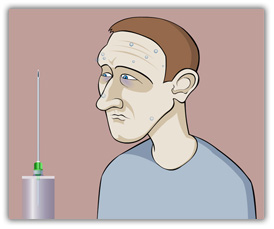 The National Association of Phlebotomists was founded in 1992 by Marie Bowes then Phlebotomy Manager for Hammersmith Hospital. Marie and a few like minded Phlebotomists met regularly to discuss Phlebotomy issues.
The National Association of Phlebotomists was founded in 1992 by Marie Bowes then Phlebotomy Manager for Hammersmith Hospital. Marie and a few like minded Phlebotomists met regularly to discuss Phlebotomy issues.
In 1993 there was an open forum where we asked for more support in terms of membership and administration in developing a recognised Association supporting Phlebotomists. We gained support from Phlebotomists country wide, spent many hours travelling to speak at Phlebotomy staff meetings, training events building up the membership to 3000 plus. This gave us the influence we needed within the Department of Health to recognise Phlebotomist as skilled professionals.
The executive committee is made up from individuals that have vast Phlebotomy experience and are passionate about patient care, quality samples and recognition for those that do it well. N.A.P is committed to the sharing of evidence-based practice through the acquisition of knowledge; development of skills that reflect the memberships' needs and promote professional recognition through established training programs.
N.A.P work tirelessly promoting best practice Phlebotomy to secure the future of Phlebotomy as a profession, we believe that while there is a place for diversity within Healthcare roles Phlebotomy is a core skill that needs to be acquired and cemented with ongoing practical experience to ensure patients receive the best possible care and laboratories receive quality samples fit for purpose.
The National Association of Phlebotomists came about as a result of a small group of senior Phlebotomists, from hospitals in the North West Thames Area, recognising the need for the development of the standards of quality in phlebotomy training. The first meeting, held at Hammersmith Hospital in April 1995, was chaired by Marie Bowes who was, at that time, Phlebotomy Supervisor there. The meeting was also attended by representatives from St Mary's Hospital Paddington; Watford General and Mount Vernon; Northwick Park and St Mark's and Ashford Hospital Middx. Discussions concluded that there was a need for standardising phlebotomy training in order to establish and maintain safety, quality and efficiency of service with good customer care. Unanimous and enthusiastic support from those present led to a series of meetings over the following month, at which the group worked to standardise the training methods and protocols for the hospitals represented. It soon became evident that if further development were to be achieved, other avenues needed exploration. In order to make our aims and aspirations more widely known, an open meeting was arranged and held at Ashford Hospital Middlesex. Senior Phlebotomists and Phlebotomy Managers from across the country were invited. The meeting was very well attended and positive feedback was received from many delegates. They expressed a great interest in what the founder group was trying to achieve. It was proposed that those present should return to their respective hospitals, discuss the events of the meeting with their colleagues and each elect a representative to attend future meetings.
In May 1996 a meeting was held at Ashford Hospital to elect committee members for the National Association of Phlebotomists. The group has worked on relentlessly and developed since then, with much valued support and advice from many people.
 The possibility of developing National Vocational Qualifications (NVQ) was investigated with valuable assistance from John Redmond, NVQ course Designer from the University of Anglia and later from Wendy Dearing from the Vocational Training Unit at Brighton Healthcare NHS Trust. It was concluded, at that time, that an NVQ qualification for Phlebotomists was not feasible. With the recent development of new standards, however, some hospitals are now introducing NVQ for Phlebotomists, using units and elements from the Care Sector. Although this will provide good underpinning for candidates, the aim is still to provide a qualification for Phlebotomists, which stands alone and brings recognition for a profession in its own right.
The possibility of developing National Vocational Qualifications (NVQ) was investigated with valuable assistance from John Redmond, NVQ course Designer from the University of Anglia and later from Wendy Dearing from the Vocational Training Unit at Brighton Healthcare NHS Trust. It was concluded, at that time, that an NVQ qualification for Phlebotomists was not feasible. With the recent development of new standards, however, some hospitals are now introducing NVQ for Phlebotomists, using units and elements from the Care Sector. Although this will provide good underpinning for candidates, the aim is still to provide a qualification for Phlebotomists, which stands alone and brings recognition for a profession in its own right.
Sue Thorpe, formerly Venepuncture Training Officer for Brighton Healthcare NHS Trust, has given us much guidance from her wealth of knowledge and experience, both as a Phlebotomist and a trainer. She has helped us to keep on the right track and has encouraged us when we have become disheartened by the magnitude of what we are trying to achieve. As well as being a committee member of the NAP Sue is also linked to the National Scientific Advisory Board (NSAB). The NSAB is also investigating the possibility of developing a nationally recognised qualification for Phlebotomists. Sue has been able, therefore, to liaise on behalf of the NAP and as a result we have benefited from support from the NSAB.